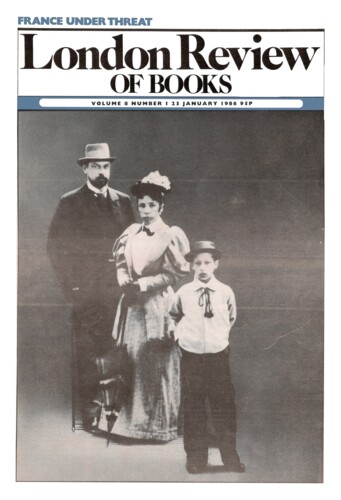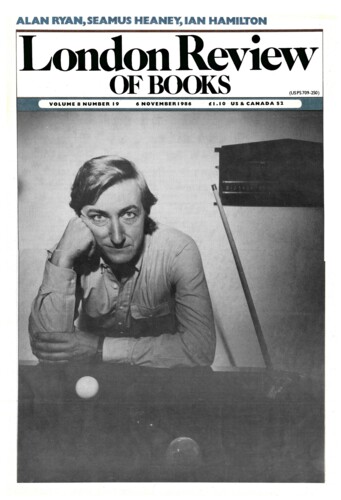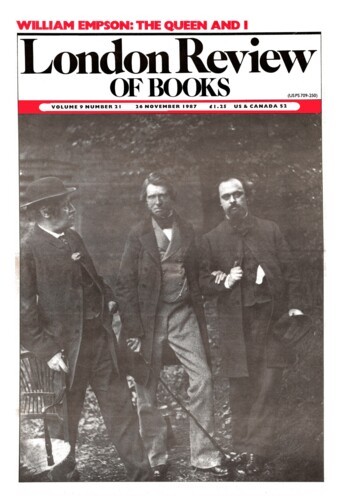Tory History
Alan Ryan, 23 January 1986
Demolish a much-loved building, and you are left with rubble. Demolish a much-loved piece of political theory, and you find it rising from its own ashes, somewhat changed in appearance, but detectably the same creature as before. The ‘Whig Interpretation of History’ is a case in point. Herbert Butterfield slew it in 1931, and here come John Pocock and Jonathan Clark to slay it again. There is next to nothing in common between them, save their opposition to the Whig Interpretation and its offspring: but it is that opposition which provides both of them with the structure of their argument and the dramatic purpose of their work.





